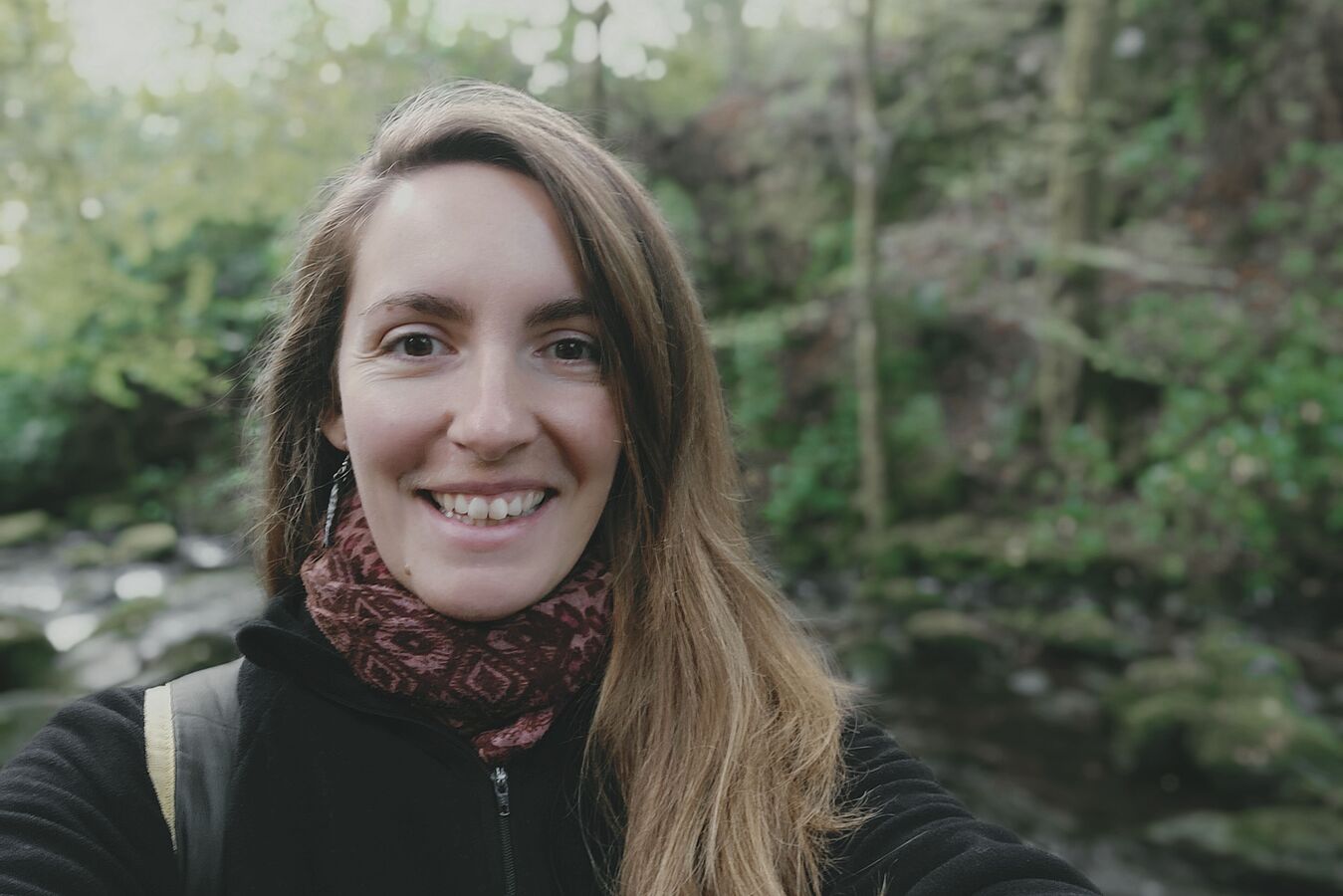Marta Alirangues-Núñez works as a PhD student at the Leibniz Institute of Freshwater Ecology and Inland Fisheries. Since January 2021, she has been the Central Equal Opportunities Officer of FVB. In her research, the Spanish ecologist is particularly interested in the restoration of aquatic ecosystems
The questions were asked by Anja Wirsing.
Ms. Alirangues-Núñez, since January 2021, you have been the Central Equal Opportunities Officer at the Forschungsverbund Berlin. This is a newly created position. What are your tasks?
It is mainly about supporting the equal opportunities officers of the institutes and the Joint Administration and organizing initiatives to bring more equality to FVB. I have a fixed time slot reserved in the meetings of the Executive Board for addressing the issue of equal opportunities in the FVB. Communication is the key, and we all need to be on board if we want to be truly effective.
Changes have to be implemented at different levels: We need to both implement changes in the structure of institutions and work on our unconscious bias, challenging gender roles and the processes that have historically benefited white men over women. For example, we need to work on these biases in recruitment processes, from how we write job advertisements, to how we can reach more women or underrepresented groups, to how we value the assets in applicants for a position, etc. It is also important to support women in their careers by providing useful training, listening to their needs, and trying to tailor activities that will give them the tools to thrive in an environment that unfortunately was made by and for men. And I have many other tasks beyond that.
What have you already been able to achieve or initiate in your first year?
I am defining the job, and that is no easy task! I am starting something (almost) from scratch, which is new and exciting, but also demanding. Four years ago, I first got involved promoting the role of women in science when I joined the Soapbox Science Berlin team, an initiative committed to increasing visibility of women and other underrepresented groups in STEMM (Science, Technology, Engineering, Math, Medicine), taking research to the streets to break down stereotypes and make science more approachable. In the last year, I participated in various training initiatives and worked on building a network of equal opportunities officers, both in Germany and internationally. These networks have given me a lot of ideas and information to support our work at FVB.
During my first year as Central Equal Opportunities Officer, I have organized four workshops for female doctoral candidates and postdocs in topics related to advancing their careers and dealing with different issues they might encounter, or already have. Besides that, all the equal opportunities officers and I have taken part in a joint training workshop to better perform our roles, both in our institutes and in the Joint Administration.
In addition, I have been gathering resources and information to be included on the Equal Opportunities page of the FVB Intranet, accessible to all employees.
Of course, all the equal opportunities officers and I meet monthly and are in continuous contact. They have been a great source of guidance and support during this first year. Work has also been done on adapting the Gender Equality Plans implemented at the institutes and FVB regarding the new regulations of Horizon Europe, the EU’s new key funding program for research and innovation (a great chance to boost equality).
What needs to be done urgently?
FVB is moving in the right direction regarding equality. This is a continuous process of assessment and of devising new strategies as we learn from past initiatives and from other institutions. However, the progress is far too slow, not only in FVB, but globally. The challenge is to transform the current power structures into a more egalitarian model in order to get everybody on board. Studies have shown that greater diversity (including not only women, but also other historically excluded or underrepresented groups) leads to higher productivity.
More women in science! Which measures do you find particularly important for coming closer to this goal?
This topic needs to be approached from different angles. The first step, and for me the really important one, is to acknowledge and work on our unconscious bias. We all have grown up in a society that has assigned different roles and stereotypes to different genders and maintained an unequal historical distribution of labor and power. We must take critical note of this and work on it together.
Another very important aspect is to provide a safe work environment where everybody can perform and thrive. This includes more support for parents and people with care duties, guidance for non-Germans on how to navigate the German system (academia, nursery applications, housing, social support ...), more transparency in the communications and internal processes of the institutes and FVB, among other things. It also includes providing tools and training to both early-career researchers and scientists in leading positions on how to create such inclusive welcoming workspaces.
We achieve equality by getting everyone on board and working together – I am convinced of that.
The interview was published in the Verbundjournal 117 | 2021 with the focus on women in science.


